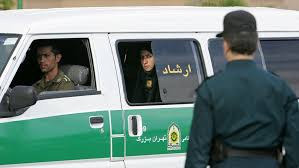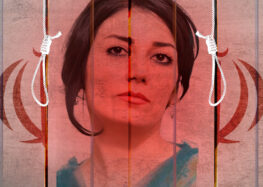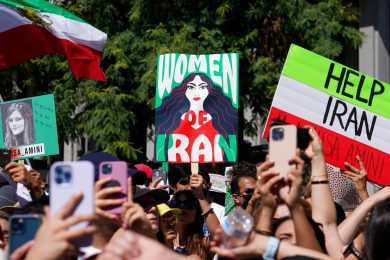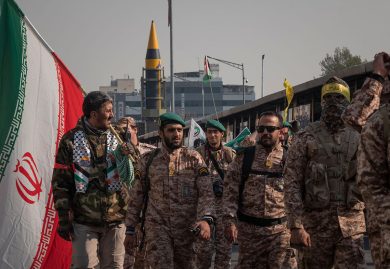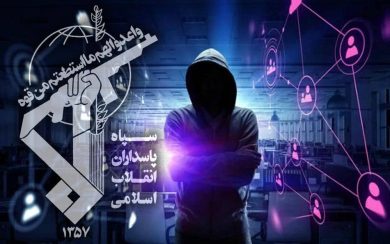The Islamic Revolutionary Guard Corps (IRGC) is a central player in Iran’s foreign policy strategy and a major supporter of global terrorism. Through an intricate financial network that includes smuggling, front companies, and control of strategic industries, the IRGC generates significant revenue to fund its operations and sustain its proxies worldwide. These financial activities enable the IRGC to promote Iran’s geopolitical ambitions, destabilize regions, and orchestrate terrorist attacks across the globe.
This analysis explores how the IRGC finances global terrorism, the mechanisms it employs, and the international implications of its financial web.
The IRGC’s Financial Network
The IRGC employs a variety of methods to generate and move funds, often circumventing sanctions and international oversight:
1. Control of Strategic Industries
The IRGC dominates key sectors of Iran’s economy, including construction, energy, and telecommunications. Profits from these industries are funneled into the IRGC’s military and terrorist activities.
• Khatam al-Anbiya Construction Headquarters:
As the IRGC’s engineering arm, this conglomerate controls billions of dollars in infrastructure projects, providing a steady revenue stream.
• Oil and Gas Smuggling:
The IRGC evades sanctions by smuggling oil and gas, using illicit networks to sell these resources on the black market.
2. Front Companies
The IRGC operates numerous front companies around the world to launder money, evade sanctions, and fund its proxies. These companies are often embedded in industries like shipping, trade, and finance.
3. Criminal Enterprises
The IRGC engages in criminal activities to generate additional revenue:
• Drug Trafficking:
Collaborating with Hezbollah, the IRGC profits from the global drug trade, particularly in Latin America and Europe.
• Weapons Smuggling:
The IRGC supplies weapons to proxies and terrorist groups, earning profits while arming its allies.
• Cybercrime:
The IRGC conducts ransomware attacks and other cybercrimes to extort money and disrupt financial systems.
4. Sanctions Evasion
Despite extensive sanctions, the IRGC uses complex schemes, including cryptocurrency transactions, to bypass restrictions and continue its operations.
Funding Global Terrorism
The IRGC uses its financial network to support proxies and terrorist groups that advance Iran’s strategic interests. Key recipients of IRGC funding include:
1. Hezbollah
• Financial Backing:
The IRGC provides Hezbollah with an estimated $700 million annually to support its military and political activities.
• Global Reach:
Hezbollah’s operations, from Lebanon to Latin America, are sustained by IRGC funding.
2. Hamas and Palestinian Islamic Jihad (PIJ)
• Support Against Israel:
The IRGC supplies weapons, training, and funds to these groups to maintain pressure on Israel and bolster Iran’s influence in Gaza.
3. Shia Militias in Iraq
• Undermining Stability:
IRGC-backed militias like Kata’ib Hezbollah receive significant financial and military support to challenge U.S. influence and destabilize Iraq’s government.
4. Houthi Rebels in Yemen
• Sustaining Conflict:
The IRGC provides the Houthis with funding and weapons, including drones and ballistic missiles, to attack Saudi Arabia and its allies.
Impact of IRGC-Funded Terrorism
The IRGC’s financial support for terrorism has far-reaching consequences:
1. Regional Destabilization
IRGC-backed groups fuel conflicts in Syria, Iraq, Yemen, and Lebanon, creating humanitarian crises and undermining efforts to achieve peace.
2. Threats to Global Security
IRGC-funded terrorism extends beyond the Middle East, with attacks and plots targeting Europe, Africa, Asia, and the Americas.
3. Economic Disruption
The IRGC’s financial activities, including smuggling and cybercrime, destabilize global markets and weaken the integrity of financial systems.
4. Human Rights Violations
Terrorist groups funded by the IRGC are responsible for countless civilian deaths, displacements, and human rights abuses.
Efforts to Counter the IRGC’s Financial Network
The international community has taken steps to disrupt the IRGC’s financial activities:
1. Sanctions
Countries like the United States and members of the European Union have imposed sanctions on the IRGC, targeting its financial networks, front companies, and affiliated individuals.
2. Financial Oversight
Increased scrutiny of global financial transactions and the identification of IRGC-linked entities have disrupted its ability to move funds.
3. Counterterrorism Operations
International efforts to dismantle terrorist networks funded by the IRGC have weakened its proxies and reduced their capacity for violence.
4. Cybersecurity Measures
Targeting the IRGC’s cyber operations and cryptocurrency use has limited its ability to generate revenue through cybercrime.
Challenges in Disrupting the IRGC’s Financial Web
Despite international efforts, the IRGC continues to adapt and find new ways to fund its activities:
1. Complex Networks:
The IRGC’s use of front companies and intermediaries makes it difficult to track and dismantle its financial operations.
2. Global Complicity:
Some countries and businesses turn a blind eye to the IRGC’s activities for economic or political reasons.
3. Sanctions Evasion Tactics:
The IRGC’s innovative methods, such as cryptocurrency use, present new challenges for enforcement.
Conclusion
The IRGC’s financial web is a critical component of its ability to fund global terrorism and advance Iran’s geopolitical goals. By exploiting industries, engaging in criminal activities, and evading sanctions, the IRGC sustains its proxies and perpetuates instability worldwide. Addressing this threat requires sustained international cooperation, enhanced financial oversight, and targeted sanctions to weaken the IRGC’s economic power and disrupt its support for terrorism. Failure to act will only embolden the IRGC and its global network.
Join Our Newsletter!
Stay informed with the latest updates, news, and ways to take action in the fight for justice and global security. Sign up now to get updates delivered straight to your inbox!

